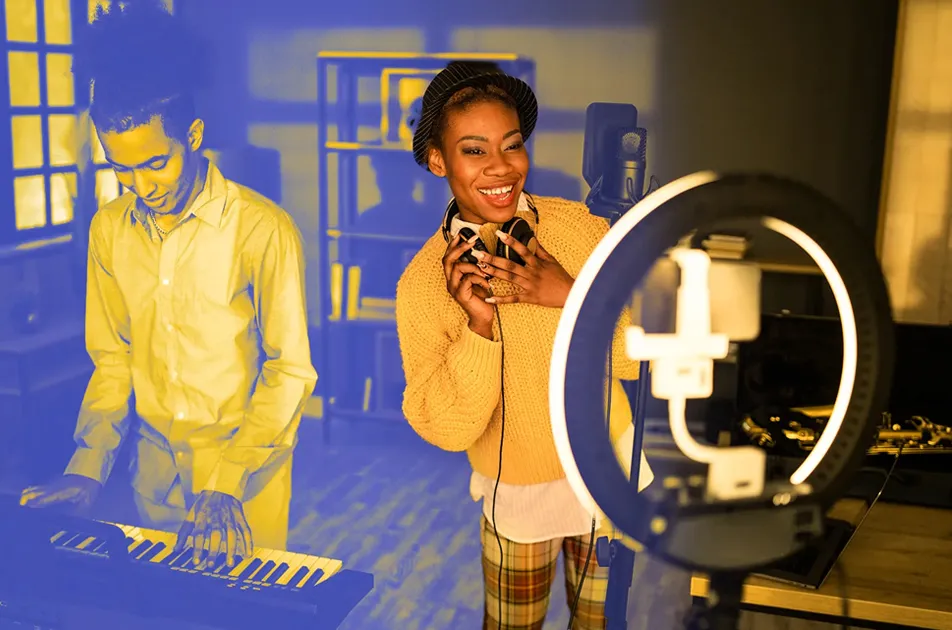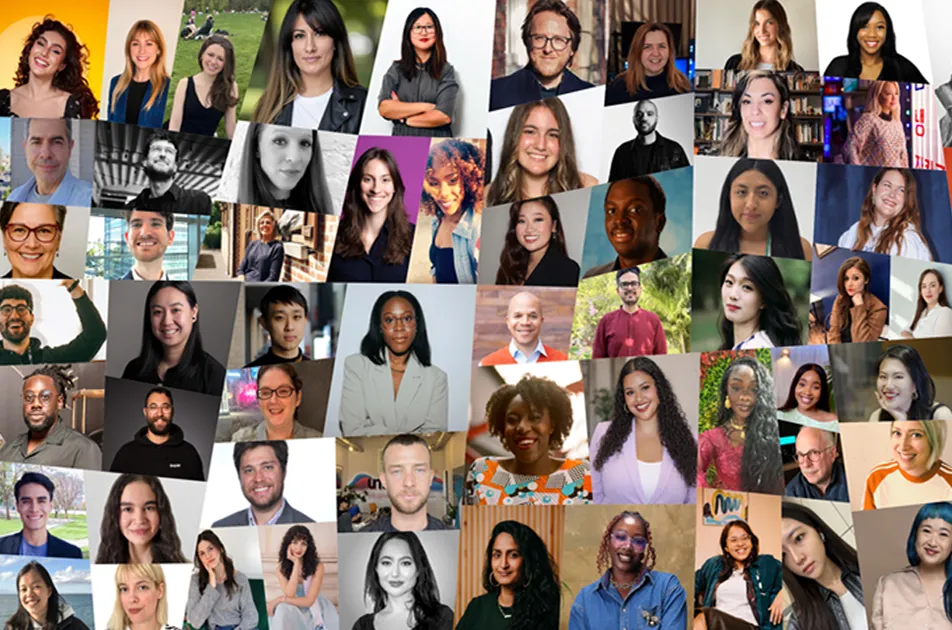This interview originally appeared on the Bandzoogle Blog.
Leading crowdfunding platform Kickstarter just released a Creator Handbook to help users launch effective campaigns. Kickstarter is open to all kinds of crowdfunding projects, and many musicians have used it to raise money to produce albums and go out on tour.
Bandzoogle spoke to Hayley Rosenblum, Kickstarter’s Music Community Manager, about their new handbook, and specifically how musicians can successfully use their platform.
Q: Hayley, what does “Music Community Manager” mean, and how did you get that cool job?
I help musicians, artists, record labels, and music-minded folks of all kinds use Kickstarter to bring their projects to life. I work with project creators throughout the life of their campaigns – when they’re building a project, while it’s live, and after it’s funded – to offer tips, advice and best practices on using Kickstarter and connecting with their communities.
I love listening and connecting to music, and got involved as a participant in various music communities as a teenager – forums, street teams, concert meet-ups, etc. I interviewed bands on my college radio show and helped put on concerts at my university. I did anything and everything that I could do to help get music out there and share the music that I loved. Before joining Kickstarter I worked for Amanda Palmer and helped her release her music independently. I started as Amanda's assistant manager and ultimately became her fan liaison, helping her to build and nurture her connection with her fans. This of course became key when Amanda started using Kickstarter to release her music.
Q: What % of projects on Kickstarter are music projects?
In the five years since Kickstarter began, 20% of all projects launched on the site have been in our Music category. Of all the successful projects on Kickstarter, one-fourth are music projects.
Q: Kickstarter uses an all-or-nothing funding model, which makes proper budgeting extremely important. How should musicians come up with a budget? What factors do you suggest they look at?
We've found that all-or-nothing funding works for two main reasons – the first being that it's less risk for both the creator and the backers. If you know that you need $20,000 to record and release an album, raising $5,000 may be helpful, but it won't allow you to complete the project as you've envisioned and promised.
Another key benefit is that all-or-nothing motivates both creators and their backers to spread the word about the project. Fans are motivated to back the project and to share it, so it meets its funding goal, so the music gets made and they can enjoy it and get the rewards they pledged for.
To plan your budget, it's essential to determine what you want to make and how you want to release it, and use that to help decide what your Kickstarter funding goal should be. If you know you want to make a full-length album on vinyl, that will obviously cost more than making a 3-song EP available as a digital download. The more physical items that you are offering (posters, CDs, records, etc.), the more you will have to make and ship out. It's important to budget your rewards into your project goal along with the cost of making the music itself.
Q: How many rewards levels do you suggest musicians should have? Is there such a thing as too few/many? And are there any types of rewards that you’re finding are very effective?
Projects should have enough reward offerings to appeal to backers at varying price levels without overwhelming them. I'd recommend starting off with about 5 to 7 reward tiers. You can always add more while your project is live! Having too many reward tiers, or making the rewards too complicated and text-heavy, may make it difficult for backers to parse through and choose.
In terms of the most effective rewards, it really varies with the type of project and creator. But offering the final output of the project is key – a physical or digital copy of the album you're making, a ticket to the concert you're putting on, a DVD of the documentary you're filming, etc. Experience rewards – items or experiences that can’t be bought in a store or anywhere else – can be great for both the project creators and the backers because of the connections they build. These are things like signed memorabilia, setlists, instruments used on the recordings, a personalized song, a lyric diary or Skype chat with the band – things that are valuable and special to fans as mementos that aren't difficult for the musicians to offer.
Q: What are some of the ways that you suggest musicians get the word out about their Kickstarter campaigns? How important is it for musicians to keep in touch with their backers throughout the campaign?
I recommend that musicians use all of the online resources they've already built for their band, as well as the personal networks of each band member. If the band has an email newsletter, a fan forum, a Facebook page, Twitter, Tumblr and other social media accounts, they should use those tools to rally their fan base and online communities.
It's important to use online networks in a way that's authentic, and to post updates about your project in a way that is not viewed as spamming. Messaging random people with a link to your project is probably not as effective as acknowledging or thanking individual fans who backed the project or posted about it. I recommend thinking about what you would want to see in your feed, and how you can share your project link in a way that's unique to you and gives your audience a taste of what they can expect from that new album, that live show etc. Introduce yourself to new fans, but be sure to speak to your existing fans and community to bring them on board with you.
Once your project is live and after it’s funded, it's important to post project updates and keep your backers informed. You know what it takes to make your project come to life, but your backers may find it really interesting to see how your record is actually made. Sharing stories, pictures, videos and project milestones with your backers helps you maintain a connection with them and keeps them excited about your project.
Q: What are some of the pitfalls you see music projects running into?
There are a number of moving parts to a music project that can cause delays, especially if you're producing a physical album. Things like an issue with a vinyl test pressing, or the quality of album artwork not matching up with what you had in mind. So it's important to consider what things are beyond your control, and even budget extra time to account for the unexpected.
This includes issues with delivering your rewards. For example, if you’re producing fragile artwork, or something that may be heavy and expensive to ship, you should consider whether you’ll want to restrict it to domestic backers, or add additional shipping options for your international fans. Or if you're offering a personalized song or anything that takes time to make, be sure to keep that in mind so you can make an awesome reward and still have enough time to complete the main project. If you do run into snags along the way, it's okay, just be open with your backers and share your progress!
Q: Any music projects on the Kickstarter right now that you are personally excited about?
Oh man. I'm excited about so many Kickstarter projects! Here's a few projects that I backed recently:
– The Viking on 6th Avenue: https://www.kickstarter.com/projects/2131638328/the-viking-of-6th-avenue/
This is a documentary on the New York musician Moondog, his life, the music he made and the musicians he influenced.
– Chaos Chaos Makes a New EP: https://www.kickstarter.com/projects/chaoschaos/chaos-chaos-makes-new-ep
Chaos Chaos is two awesome sisters, Asy and Chloe Saavedra, formerly of the band Smoosh.
– Acoustic Throwback – 90s R&B: https://www.kickstarter.com/projects/52in52/acoustic-throwback-90s-randb
Ernie Halter wants to record acoustic covers of classic R&B songs from the 1990s.
Hypebot contributing writer Dave Cool is Director of Artist Relations for musician website & marketing platform Bandzoogle. Twitter: @Bandzoogle | @dave_cool
Related articles










